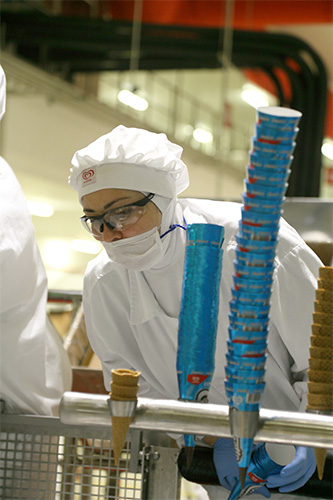Unilever has opened a new ice cream production plant in Konya, Turkey, following an investment of over €95 million to build the state of the art facility. The Algida factory is the company’s 35th ice cream plant in the world. It will produce brands such as Cornetto, Max and Twister, and will be the model for all future Heartbrand factories around the world.
The new facility, which aims to be the first Unilever ice cream plant in the world with LEED certification, is profiled by the company as “another example of how sustainability is at the heart of Unilever’s business model.” It reuses rain and surface water, recovers heat, and is zero-non-hazardous-waste-to-landfill by design.
Pier Luigi Sigismondi, Unilever chief supply chain officer, said: “Turkey is an important growth market for Unilever. We have a long history in the country – having been in business there for almost 100 years and opened our first factory in 1952. Today, Konya has become our eighth manufacturing site in the country, as we continue to invest in growing our Turkish and regional business. This new factory is a testament to our commitment to drive sustainable growth.”
Unilever entered the Turkish ice cream market in 1990 and has grown its business to a marketing-leading position with a current market share of over 70%. The new factory will contribute to the Turkish economy, initially employing around 300 people. Ice cream produced in Konya will be for domestic use, but also to export to the Middle East and North Africa. Current annual production capacity is 80 million litres, with the option to expand to 200 million litres.
Sigismondi pointed out that the increasing domestic consumption and the opportunities to grow exports are good indicators of the significant potential for expansion of the factory. He explained that the reason why Konya was selected for the factory investment as follows: “We decided that Konya was the most suitable place for our investment for a number of reasons, such as access to raw materials, good infrastructure and logistics, the availability of qualified workers and lower earthquake risks, as well as and the good support of Konya’s local administration.”





